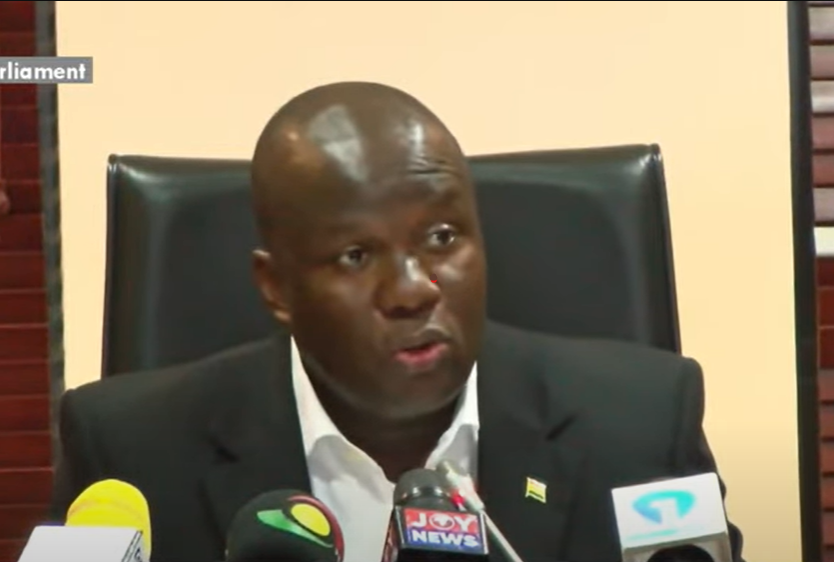Member of Parliament for Damongo constituency, Samuel Abdulai Jinapor, has accused the government of failing to deliver on its flagship campaign pledges, criticising the administration of presiding over an economy where “the people are suffering while the data looks good on paper.”
He said Ghanaians have very high expectations of the government due its campaign promises, but it has failed to translate these promises into action.
Contributing to the debate on the 2026 Budget Statement and Economic Policy in Parliament, the lawmaker argued that the government’s overwhelming electoral mandate was won on two clear commitments — reducing the cost of living and doing business, as well as creating “hundreds of thousands of jobs” for unemployed Ghanaians.
But nearly a year after assuming office, there are no signs of these promises materialising.
24-Hour Economy ‘Not Visible’
Mr. Jinapor questioned the government’s claim that its much-touted 24-hour economy had entered full implementation, saying there was no evidence of the promised three-shift system outlined in the NDC’s own 2024 manifesto. “Where is the 1:3:3 formula,” he asked.
Abu Jinapor noted that even the Ministry of Finance “closes at 5pm,” asking how a supposedly round-the-clock economic model could function when the public sector itself was struggling with basic operations.
“A whole year in office, and the Government has failed to demonstrate a well-defined national plan that can support a fully functioning 24-hour economic system.”
He further argued that the promise of one job being expanded into three shifts for three different people had not only stalled but run contrary to the current reality, where workers in critical sectors, including nursing and teaching, were allegedly working without pay.
Macroeconomic gains ‘Not Reaching the People’
Although the budget highlights improved macroeconomic indicators, including reduced expenditure and lower inflation, Jinapor said these figures did not reflect conditions on the ground.
He condemned what he described as “under-spending,” noting that government expenditure in the first three quarters was 15% below target.
This, he said, was slowing business activity, weakening credit access, and leaving contractors, farmers and public workers unpaid. “What the Budget labels as discipline is, in fact, squeezing the real economy. There is no trickle-down effect.”
Citing recent reports of over one million metric tonnes of paddy rice rotting in storage due to lack of buyers and weakened purchasing power, he warned that the real sector of the economy was showing signs of distress that could not be ignored.
Concerns over government size
Mr. Jinapor also criticised the expansion of government appointments, particularly the appointment of new presidential staffers, envoys and 18 deputy heads of mission.
These appointments, he argued, has resulted in almost a fifty percent (50%) increment in the budgetary allocation for compensation for staff of the Office of the President, from GH¢326 million in 2024 to GH¢540 million in 2025.
Referring to reports by the Bank of Ghana warning against the rising cost of compensation, he said such decisions pose major fiscal risks for the economy.
Priorities in question
The MP further criticised a budgetary allocation of US$1.2 billion for new military aircraft and a ship, questioning the government’s priorities when essential sectors were struggling.
“Is this the priority of the government when traders are suffering, farmers are suffering, nurses are suffering, teachers are suffering?” he asked.
The Damongo lawmaker insisted that the budget’s objectives would only be realised if government spending became timely, strategic and targeted toward stimulating demand and creating jobs.
But currently, he said, the economy showed “clear signs of stress,” with delayed payments, weak credit flows, and unmet job creation promises eroding public confidence in the economy.
He urged the Finance Minister and the Bank of Ghana to inject liquidity into the economy, support productive sectors and restore the momentum needed to make the budget meaningful for ordinary Ghanaians.
DISCLAIMER: The Views, Comments, Opinions, Contributions and Statements made by Readers and Contributors on this platform do not necessarily represent the views or policy of Multimedia Group Limited.
DISCLAIMER: The Views, Comments, Opinions, Contributions and Statements made by Readers and Contributors on this platform do not necessarily represent the views or policy of Multimedia Group Limited.
